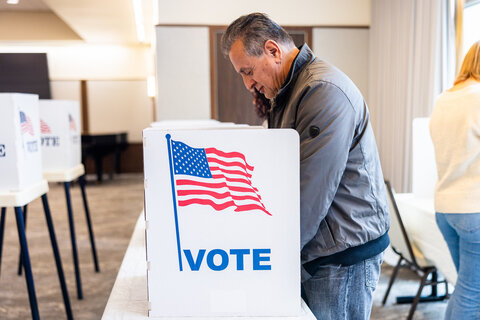Walter Olson
Number sixteen in our series of occasional roundups on election law and policy:
“After reviewing state voter rolls going back to the 1980s, Louisiana’s Republican secretary of state announced this month that ‘non-citizens illegally registering or voting is not a systemic problem in Louisiana.’ That finding aligns with years of research.” [Gabriella Sanchez and Kevin Morris, Brennan Center] New research on the topic from the Center for Election Innovation and Research is along the same lines [Miles Parks, NPR].
At the same time, a Guyanese visa overstayer pretended to citizenship and other qualifications during a career of spectacular imposture that culminated in his being appointed school superintendent in Des Moines, Iowa; along the way he wound up a registered voter in Maryland (without apparently casting any actual votes), and some lawmakers in that state want to know how that happened [WBAL].
Audits typically find fake-person voter fraud extremely rare, one reason being that most people dislike felony raps. Even so, a Costa Mesa, CA, woman “has been charged with multiple felonies after she allegedly registered her dog to vote and cast mail-in ballots in her pet’s name,” according to the Orange County D.A. [KCRA/WYFF] According to court documents, political operators in Hamtramck, MI, outside Detroit, allegedly paid newly naturalized citizens and filled out their ballots [Hayley Harding, VoteBeat].
I know—because I hear from you—that some readers of these columns are interested in specialized voting systems such as Condorcet, approval, star, and Borda voting. Here is Alex Tabarrok explaining why he likes the Borda Count.
“Lessons from the States: Building Trust in Georgia Elections” [Chris McIsaac and Scot Turner, R Street]. “Georgia Republicans advance a plan to leave a bipartisan voter data group, despite warnings” [AP via ELB].
With the question of representation for Washington, DC, residents recently in the news, here’s my piece from 2019 on the advantages of retroceding DC or at least its residential areas to the state of Maryland.

